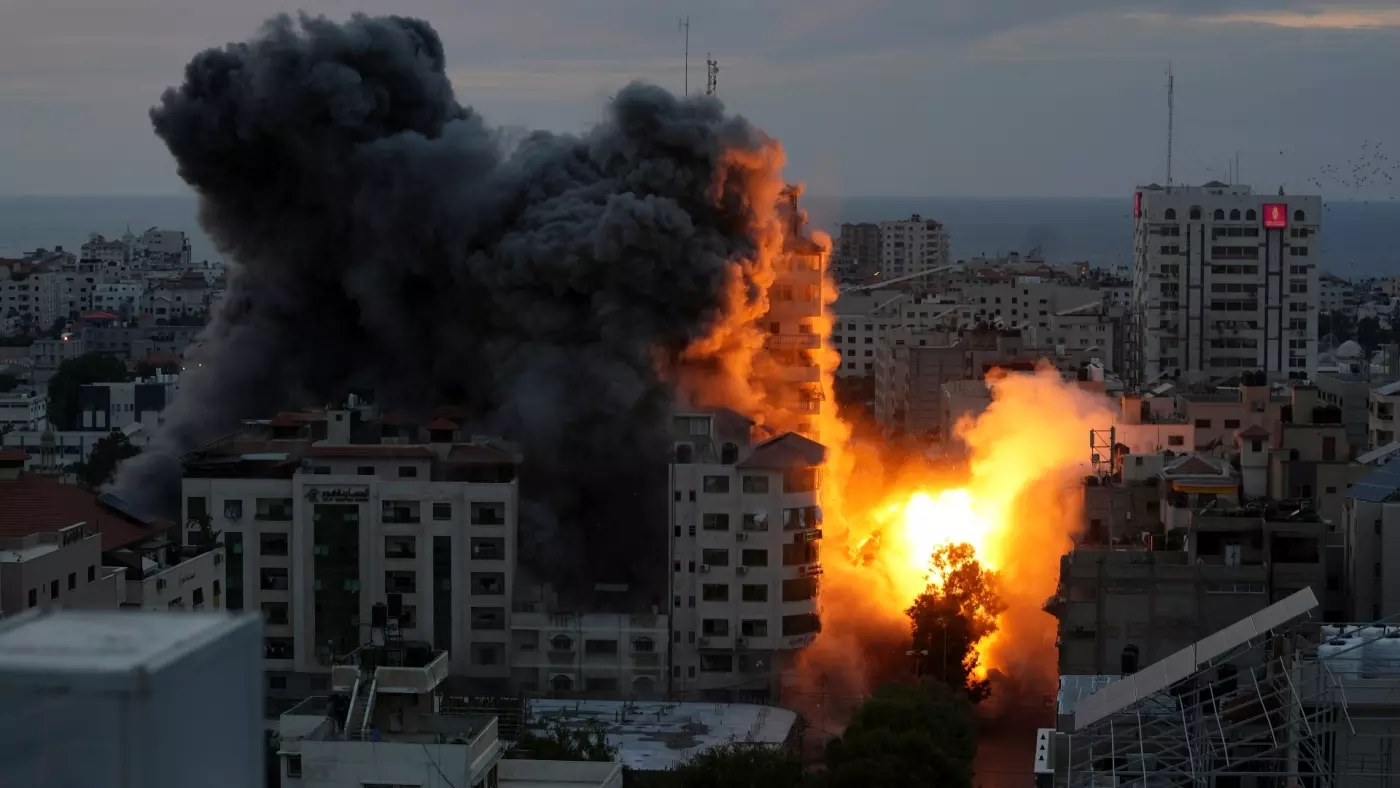الترجمة الانكليزية لبيان البديل الشيوعي
(الانتفاضة تتصاعد، وإرساء حركة مجالسية جماهيرية لحكم البلاد أصبح امرا ملحا وعاجلا)
With the recent escalation by the protestors on the twentieth of this month, the October Uprising (in Iraq) entered a new phase. The uprisings and the liberation masses have become confronted with urgent tasks of strengthening the uprising in political and organisational terms and laying the foundations for an alternate mass council rule for the existing system.
The uprising has made great strides in the past few months, as it has become an impenetrable fortress in the face of the repression, arrests and kidnappings that have been practiced, and still are, by the authority, its intelligence services and its militias. The intifada, its continuation and its victories, created a deep and ever-increasing crisis in the overall structure of political Islam and its authority and ideological institutions. This crisis crippled the political Islam movement’s grip on the life and plight of millions of people in Iraq, with the consequent development of a revolutionary situation in Iraq and its reflection on the Middle East level.
The masses of workers, toilers, the unemployed, young women and men, students, working and oppressed women, and the masses who work in precarious jobs, are the main driving forces of this uprising, and they are the ones who marked the uprising with their class character and social identity. These masses are in a stiff unresolvable opposition with the authority and the entire political, economic, social and intellectual system in place.
The uprising is the stronghold of these proletarian masses, its untouchable fortress, and its efficient means of struggle against the authorities. These liberating social forces and their struggle represent social progress and the interests of the entire society in eliminating poverty, unemployment, discrimination, and liberation from all that is outmoded, reactionary, authoritarian, and irrelevant to social development, equal values, human happiness, and modern life.
Although the endeavours of both Iran and America to militarise the political atmosphere in Iraq and eliminate the uprising will not stop, they have failed to achieve this. The intifada came out stronger and more vigorous despite the negative effects resulting from the atmosphere of recent armed conflicts between the two parties and the efforts of the forces and militia parties in Iraq to militarise the situation and bring attention to the “external enemy” and fuel nationalism and sectarianism within the masses. The uprising responded to both sides of the conflict with the slogan “No to America and No to Iran” and their interference in Iraq and affirmed that the way forward is the victory of the uprising and the overthrow of the authority of these parties and the militia forces linked by hundreds of leads to both parties.
The heroic epics of the revolutionary youth and students in order to defend the uprising and its victory are not separated by an iron wall from the widespread and daily economic and social struggle of millions of workers, toilers and the unemployed in Iraq in order to secure a better life and against the existing political system.
The society have sharply polarised with working class and libertarian masses, in the state of uprising and constant struggle on one end and the owners of money and capital and the currents of political Islam, the nationalists, their authority, their parties and their corrupt forces and whales of corruption in the other end and as a counter revolutionary force.
It is not possible to eliminate this social and class polarisation that is taking place in Iraq with violence, repression and militarisation, and there can be no retreat on this political, social and intellectual progress taking place, it has become a reality full of life, embodied clearly in the uprising.
Since the early days of the October uprising, the Organisation of Communist Alternative in Iraq emphasised that the uprising masses need to organise themselves in revolutionary mass councils and act as an alternative authority to the existing system, and raised the slogan “All power to the Rising Masses.” It also adopted a political platform in this regard and has always worked to persuade the uprising masses to establish revolutionary councils. In a special document that we issued on this subject on December 5, 2019, titled “General Guidelines for Establishing Revolutionary People’s Councils,” we have outlined the policies and goals that are necessary to be the pillars of the policies of the Councils authority and the country’s constitution.
In these documents and our other literature, it has been emphasised that establishing an alternative council system in Iraq must be built at the heart of society, in factories, workshops, institutions, neighbourhoods, stores, universities, institutes, and schools, so that the working class, toilers, and various social strata of women, youth, students, and oppressed groups themselves are organised in mass councils . These councils establish the structure of the revolutionary mass power of the whole country and replace parliament, the parliamentary system, and the government so that they carry out legislative and executive tasks simultaneously.
With the recent escalation and the uprisings announcing in Nasiriyah their intention to form a “surrogate government” and this announcement was supported by the uprisings in Baghdad and the rest of the provinces, this trend, i.e. the necessity of organising the uprising forces for themselves as an alternative authority, is practically presented by the uprising themselves, and this is an important and positive development.
The first prerequisite for the formation of revolutionary mass councils is the initiative to organise public meetings of the uprisings in the squares, and the initiative of activists among workers, youth, students, women, and citizens to hold public meetings for the purpose of forming councils in the workplace and living places. The general meetings will decide on the general policies and principles of the Councils Movement in the country, which will become major axes of the country’s constitution later.
Although the council movement is established in the frameworks of local political and administrative geography, but it is a comprehensive movement for the whole of the country where it is necessary for the formation of councils in a city to ensure linkage and coordination with the rest of the cities and governorates.
As the uprising begins to spread in the neighbourhoods, localities and various regions of Baghdad and the rest of the provinces during these days, and with any degree of decline of the militia and government forces in these places, the formation of the revolutionary councils of the Revolution will become an urgent and pressing task more than ever. The initiative to form councils is the guarantee for leading the uprising, achieving victory, and establishing alternative authority.
Organisation of Communist Alternative in Iraq
23.1.2020
 منظمة البديل الشيوعي في العراق تنظيم شيوعي عمالي منهجه الفكري والسياسي ماركسي مستنبط من “البيان الشيوعي”
منظمة البديل الشيوعي في العراق تنظيم شيوعي عمالي منهجه الفكري والسياسي ماركسي مستنبط من “البيان الشيوعي”











